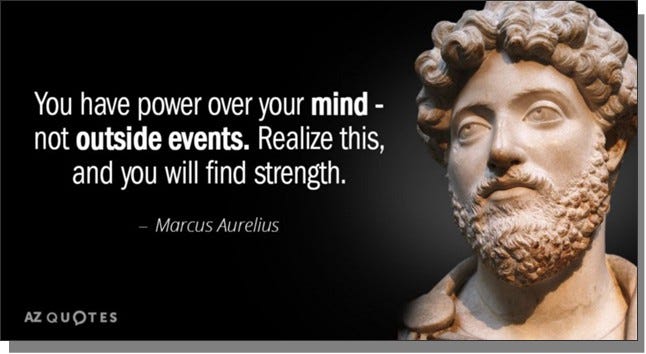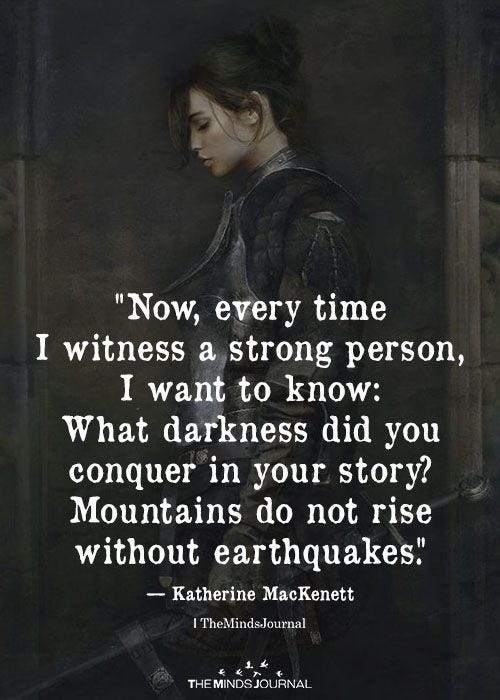I sat with my mom at the hospital, having fasted for 24 hours for a medical exam. I am thinking about my dad, who, just over almost a year ago passed away from cancer.
It was the most heart wrenching experience in my life. Remembering our last days together, when I would take him to the multitude of doctor’s appointments , the tremendous amount of suffering that he must have gone through and the courage that it took to fight until the very end. He will always be my hero.
These thoughts were swirling in my head as I was gently placed into a hospital bed, covered with a warm blanket, IV in hand, with the gentle voice of the nurse urging me to ‘take a deep breath.’ I quickly went into the land of non-existence, the sedation urged me to forget, if but for a few hours.
The tragedy of my father’s passing had occupied my life rapidly. On top of the wound, the brazen wound was layered with trauma from a previous experience. The whole self; bruised and afraid; petrified. I was hospitalized with Post Traumatic Stress Disorder (PTSD).
Four years later, I found myself to be a 38 year old woman on disability, with multiple chronic conditions, trying to stitch her life back together. Time and time again, friends, acquaintances and loved ones have told me that I am an incredibly strong woman, even when falling into pieces. Normally, and up until that day at the hospital, I would shrug these comments off, brush them aside into the enormous pile of messiness that my life had become, unable to let it sink into my heart.
That day at the hospital, prior to the sedation, something clicked inside of me.
While waiting for the nurse to wheel me into the procedure room, I found myself reflecting upon this phrase and for the first time, I accepted it. Wow. Imagine that. Starved, dehydrated, full of medications with a long list of complex problems trailing me and a deceased father on my mind, I actually felt it. I felt strong inside! And, even more incredulous was the fact that I believed it, deep within, despite where I was, despite my circumstances, I believed it and I recognized the truth of who I really was.
It felt good, it felt real, and it dawned on me, just how many people must be experiencing the same mental fallacies that I have been, because of what happened to them or a status they lost, perhaps the dehydration of a promising relationship. Whatever the reason, there was a reason for them to feel this way, except, that the reason wasn’t real. It wasn’t the truth. It isn’t the truth~ You are a survivor, and you must know it.
If you feel like less than a success, I urge you to read my article on “Redefining Success” . Questioning your self-worth is a trap that we have to be careful not to fall into. Coming back to my epiphany, I wonder how many times have you doubted your own abilities and strength to overcome, to persevere and survive? I am certain that for most of us, a lot of the doubts that have been ingrained in us happen at the subconscious level. In fact, many of the world’s leading thinkers and philosophers have studied the subconscious and conscious mind as being in the driver’s seat to of our thoughts, beliefs, emotions, even the execution of actions.
A primary example is the work of Carl Jung, a Swiss psychiatrist and psychoanalyst who founded analytical psychology and worked with Sigmund Freud. Jung’s work was light years ahead of his time. Jung saw repression as one element of the unconscious, but also as a storehouse of forgotten information. The personal unconscious included ‘complexes;’ a collection of thoughts, feelings, attitudes and memories that focus on a single concept.
The subconscious had a role in the conscious life. It reasons that if one is imbued with bad memories or influences that they have suppressed from the past, or unbalanced feelings and emotions that they have internalized, they could influence one into thinking that they are weak, unworthy, or undesirable. Circumstances can do the same.
Marcus Aurelius, named ‘the Philosopher’, was a Roman emperor from 161 to 180 AD, was considered to be one of the most important Stoic philosophers of his time. His book on “Meditations” is considered an essential read about philosophy to date. Even in ancient times, Aurelius understood that the power of the mind was tremendously important in understanding an individual and society as a whole. Therefore, the mind, whether subconsciously or consciously, can create thoughts that create beliefs and values that represent beliefs, such as unworthiness and lack of strength to overcome challenges.

It is our circumstances that may dictate our emotions. To go into more detail, it is our thoughts about the circumstances that produce further thoughts, emotions, even drive our actions.
At the hospital, the pivotal moment came while I was in a hospital bed, brewing in trepidation over my dad and his experience, then, thinking about myself at that very moment and everything that I have gone through, and wow! Where did that thought come from? “I AM A STRONG WOMAN!?” I felt it so deeply inside that I shook.
Now, what if you stand in front of the mirror, internalize what the good people around you have been saying, and recognize that you are a strong person! No question marks involved. All circumstances and life history aside. This includes everything that you have been through, the fact that you are still standing and the inherent value which you never lost in the first place.
This doesn’t meant that the mind won’t revert back to its programmed thinking, but for that moment in the hospital room I actually felt strong and I believed it. Isn’t that a success? Lao Tzu, an ancient Chinese philosopher and writer, also the founder of philosophical Taoism, was quoted as saying that “If you correct your mind, the rest of your life will fall into place.” What he referred to was that our mind is so powerful that our thoughts, or the negation of thoughts (for example that I was a strong woman (but no longer am) because….), can produce our reality. And it has. And it will.
This is why so many people fail to believe in themselves, even for brief periods of time, which I would call periods of emptiness or negating the whole self. The mind has evolved for thousands of years and our complex brains are hardwired to think, whereas before, the reptilian brain was mainly concerned about survival and reproduction. But we have evolved, and how so!
When you pile on top of the brain-evolved-to-think the wrong influences, thoughts, upbringing, and circumstances, then we wage a war inside; falsely allowing us to believe that we are not strong enough, not pretty enough, we can’t survive this, we will be beat by another, we won’t succeed. The list is very real and complicated, just like us! This is partially the reason for the growing popularity of ancient practices such as those of mindfulness, yoga, Ta Chi, meditation, Reiki and more.
All of these practices attempt to retrain our brain away from not only overthinking, but also from negative thinking and self-sabotage. This falls into a process of neuroplasticity; in which the brain rewires itself over the course of an individual’s lifespan. For all we know, we could be influencing the subconscious levels too.
We are not to blame. Often, we are or have been the product of circumstances beyond our control. However, we can at the very least attempt to understand our influences, think in different ways and observe if that process of retraining the brain produces a different emotional response or even a different kind of day, perhaps one where things go your way. Leading edge thinkers would agree. I would add to the list the likes of Dr. Joe Dispenza, a neuroscientist and leading author and lecturer, who was hit by a car at a young age and given a bleak chance of walking again. Dr. Dispenza was able to fully recover from his nearly fatal back injury, mainly, through the power of his mind!
After months of intensive inner work (visualization, meditation and applying the principles of quantum physics), and physical therapy, he began walking and returned daily life. We have seen how the power of the mind can heal, as well as hurt.
I believe that the mind has the potential to produce both positive and negative realities, and even stillness where no judgement on the person, situation or thought occurs. I believe in the person as a whole; mind, body, Spirit and heart. Therefore, to separate the mind as a culprit is folly. The body can harm and heal you. The mind too, so can the heart. The Spirit, if we are discussing the person’s Spirit in terms of mood or spiritual acuity, then the Spirit can be affected by all of the above. For example, the thought of “I am a strong woman!” produced an incredibly powerful effect on my body’s energy (I shook), and it resonated deeply in my heart (where I felt good), and I believed it because my Spirit knew (perhaps in silence) that it was the truth. Negativity and even numbness work in the same way on the individual, as positivism and movement do.
Thus, let us be wise my friends. Knowing what we know, witnessing what we have witnessed, let us be wise with our thoughts, actions, behaviors and overall our being. Because, if I can produce such a powerful thought amidst the hunger and sedation and despondency in the hospital room, think of what we can do for ourselves and to ourselves by turning our thoughts and beliefs around. Think of what we can collectively do, if we just realize how strong we really are!




